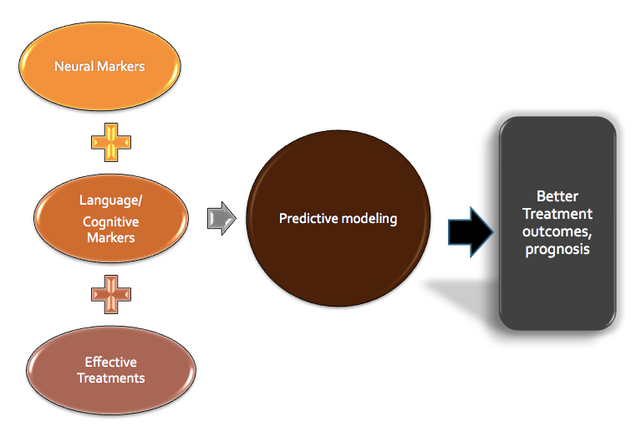Research
We are now known as BU Center for Brain Recovery. Click here to go to our new website.
The primary goal of our research is to further our understanding of the effects of brain damage on communication. In particular, we are interested in language processing and language recovery mechanisms in normal individuals and patients with brain damage. We combine online reaction time experiments and offline paper/pencil tasks to investigate various aspects of lexical semantic processing (words and their meanings) in normal individuals and individuals with aphasia.
Additionally, a major focus of our research is to develop treatment methods to alleviate language deficits. Through theoretically motivated treatment experiments, we hope to demonstrate that language recovery can take place in a predictable manner following brain damage, and can be far more efficient than traditional didactic approaches
Our research projects can be categorized into the following four themes that form the basis for better treatment outcomes:

We use brain-based biomarkers as potential measures that correlate to the linguistic, behavioral, and cognitive characeristics of aphasia as well as neuroimaging studies that focus on localizing activation and other changes associated with aphasic language recovery over the course of treatment.
- White Matter Connectivity
- Small Vessel Disease (SVD)
- Multi-Voxel Pattern Analysis (MVPA)
- Projects on Language Recovery Using fMRI
- Voxel-Based Lesion-Symptom Mapping Applied to Calculation Performance in Aphasic Patients
Language and Cognitive Markers
We look at the nature of cognitive control and extra linguistic markers of language recovery. We also continue to explore the cognitive and linguistic deficits that often accompany aphasia such as executive function, attention, and memory.
- Bilingualism
- Bilingual Aphasia
- Language in Aphasia
- Verbal Fluency as a Measure of Lexical Access and Cognitive Control in Bilinguals with Aphasia
We examine various aspects of rehabilitation throughout the course of treatment. Using the data available, we choose the best treatment on an individual basis.
- Intensive Cognitive and Communication Rehabilitation
- Aphasia Rehabilitation
- Validation of an iPAD Based Therapy
- Language Recovery
- Chinese Verb Network Strengthening Treatment (VNeST)
With the help of complex algorithms and through examining several patterns of generalization, we aim to predict individual treatment outcomes. By combining an individual’s unique characteristics, we hope to be able produce accurate predictions on each individual’s outcomes.
Additional Resources